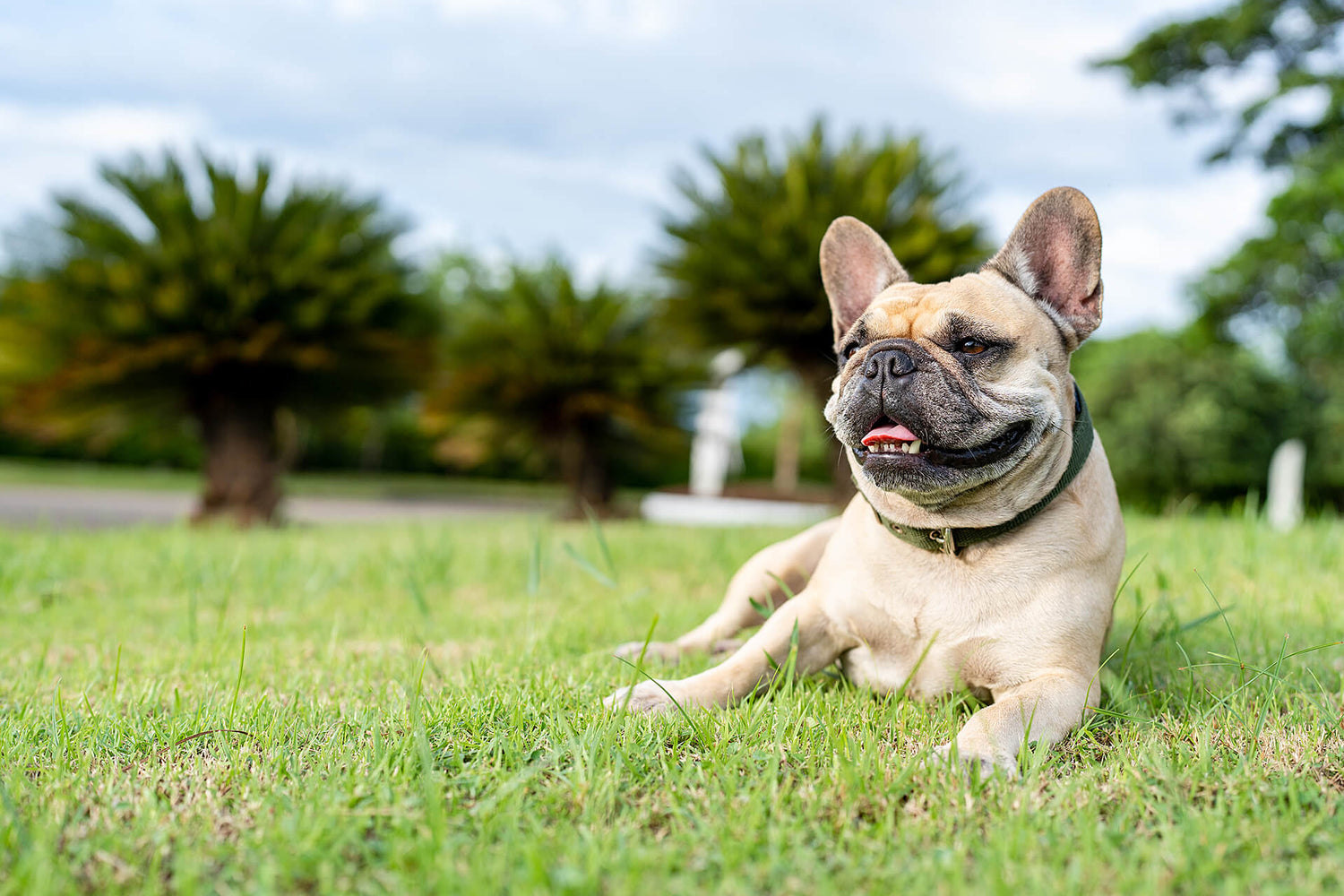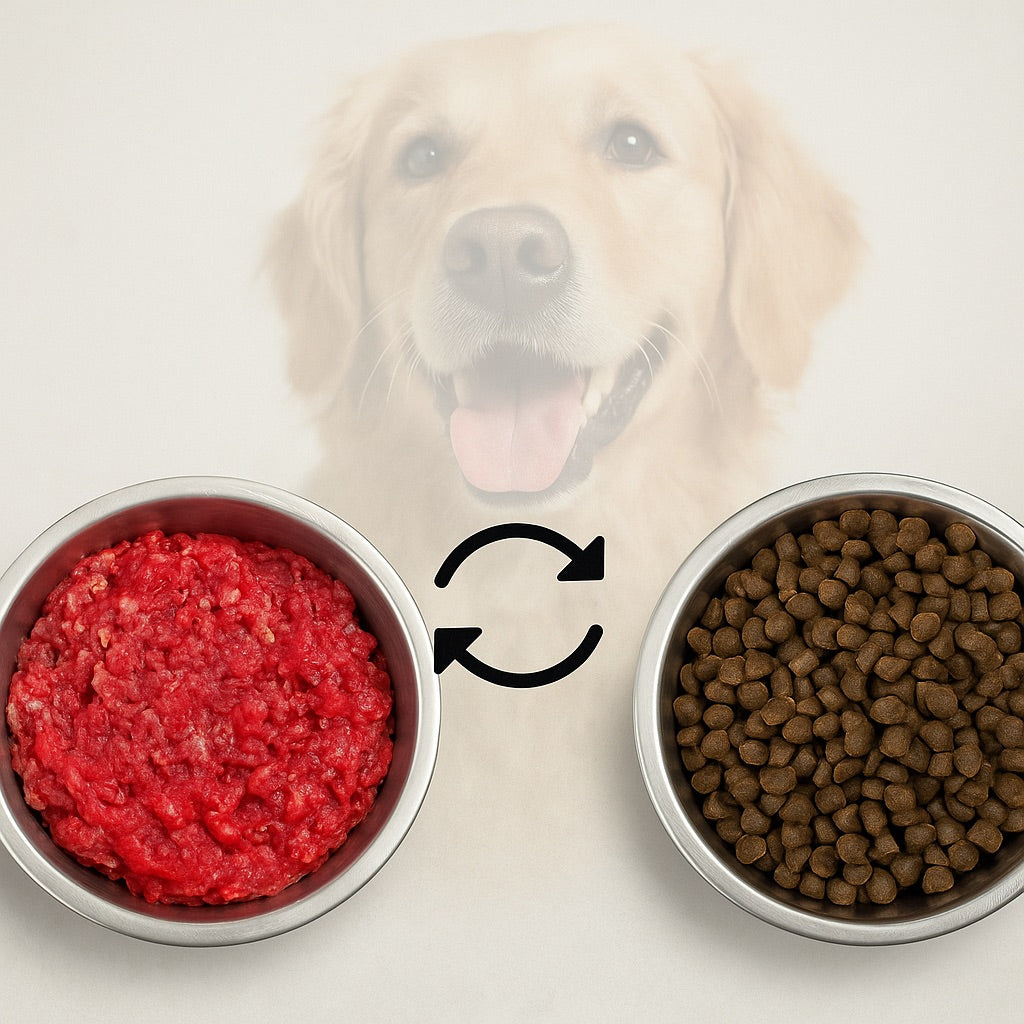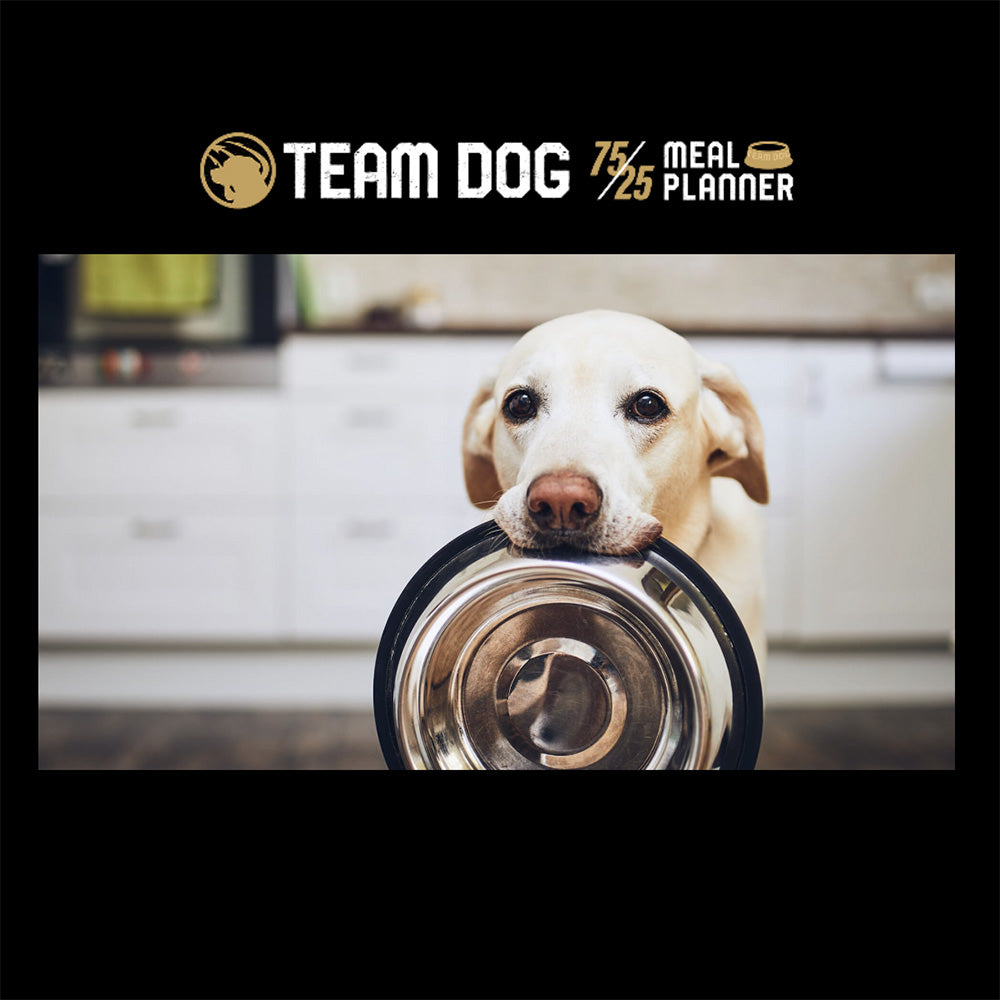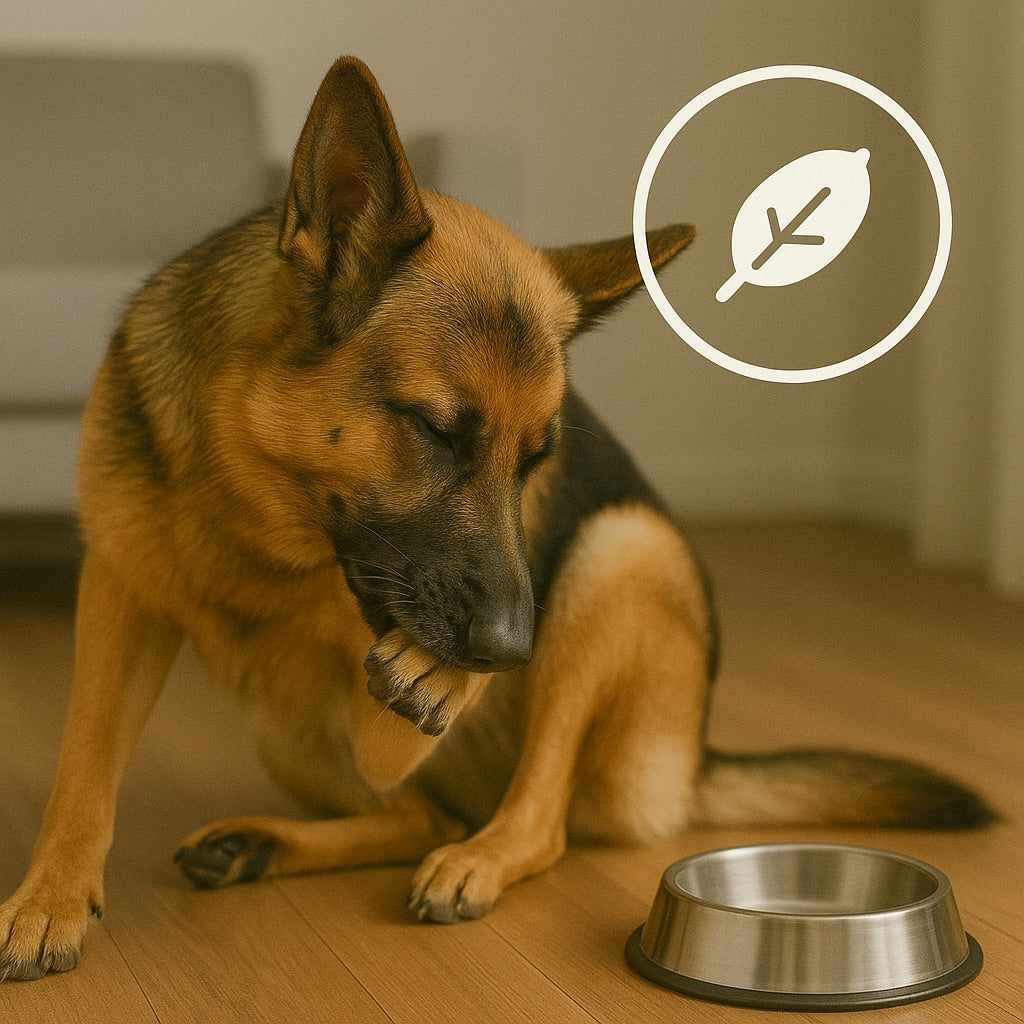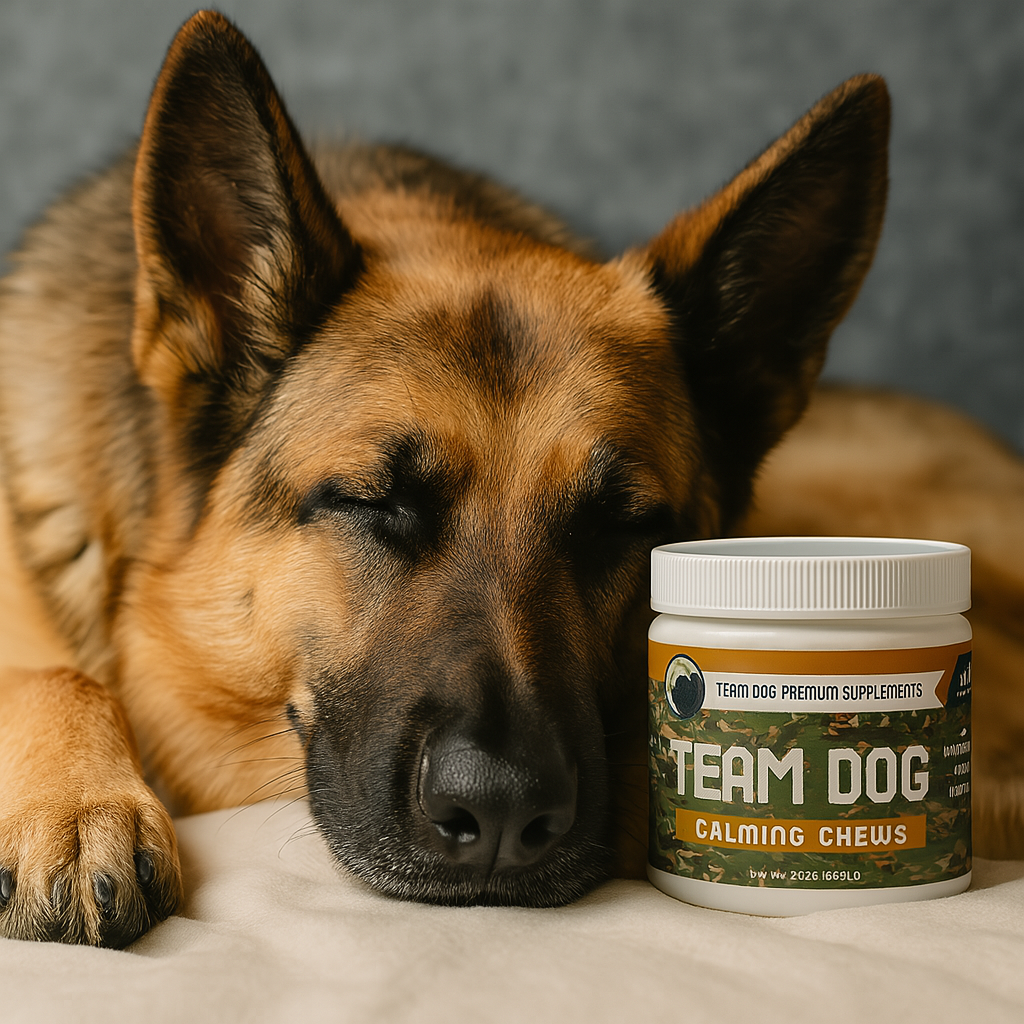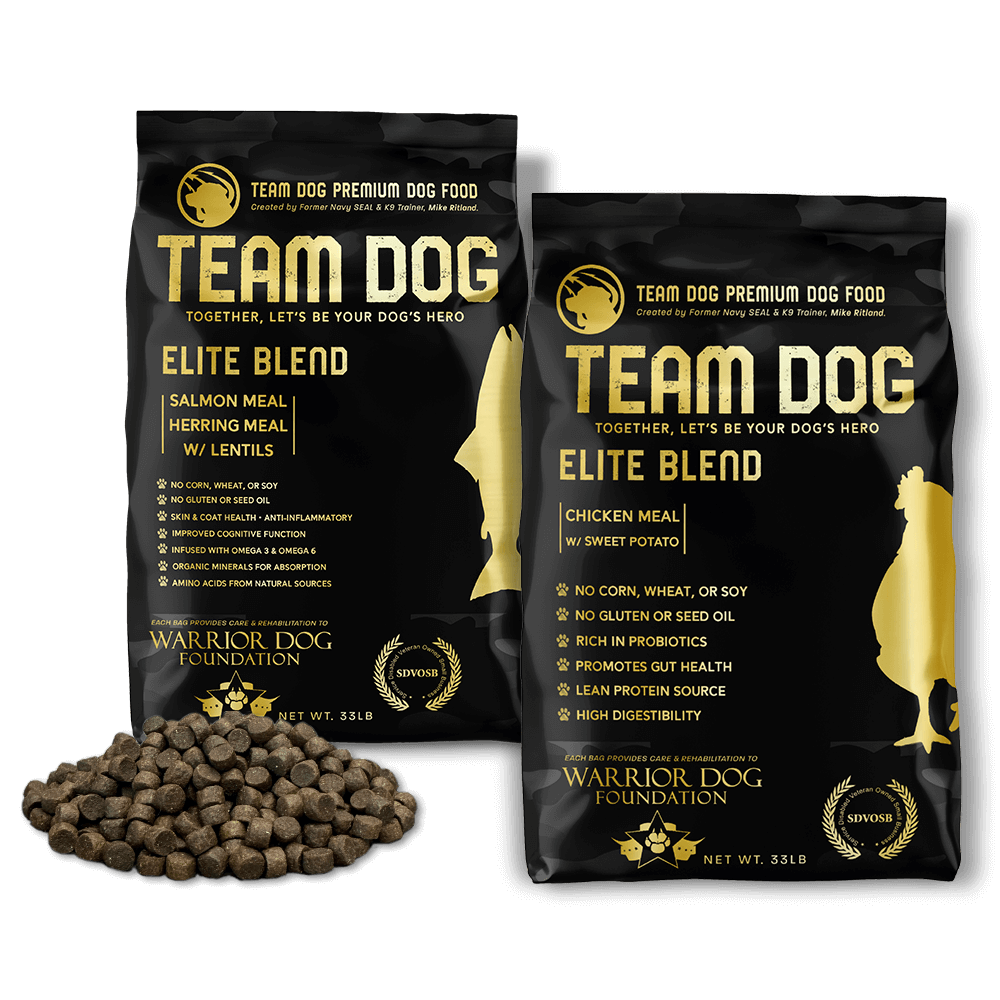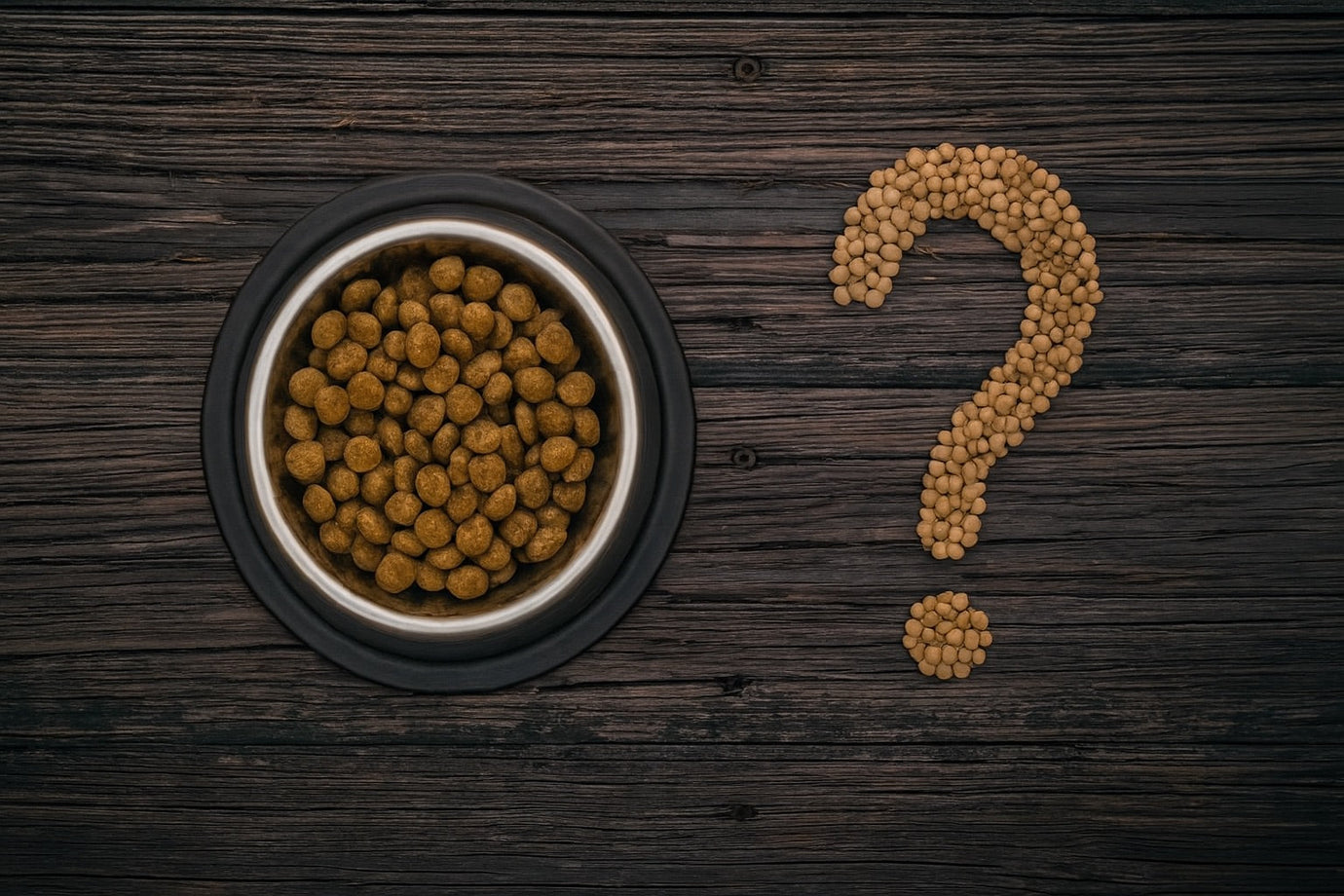Paws Off! 10 Human Foods That Are Dangerous for Dogs
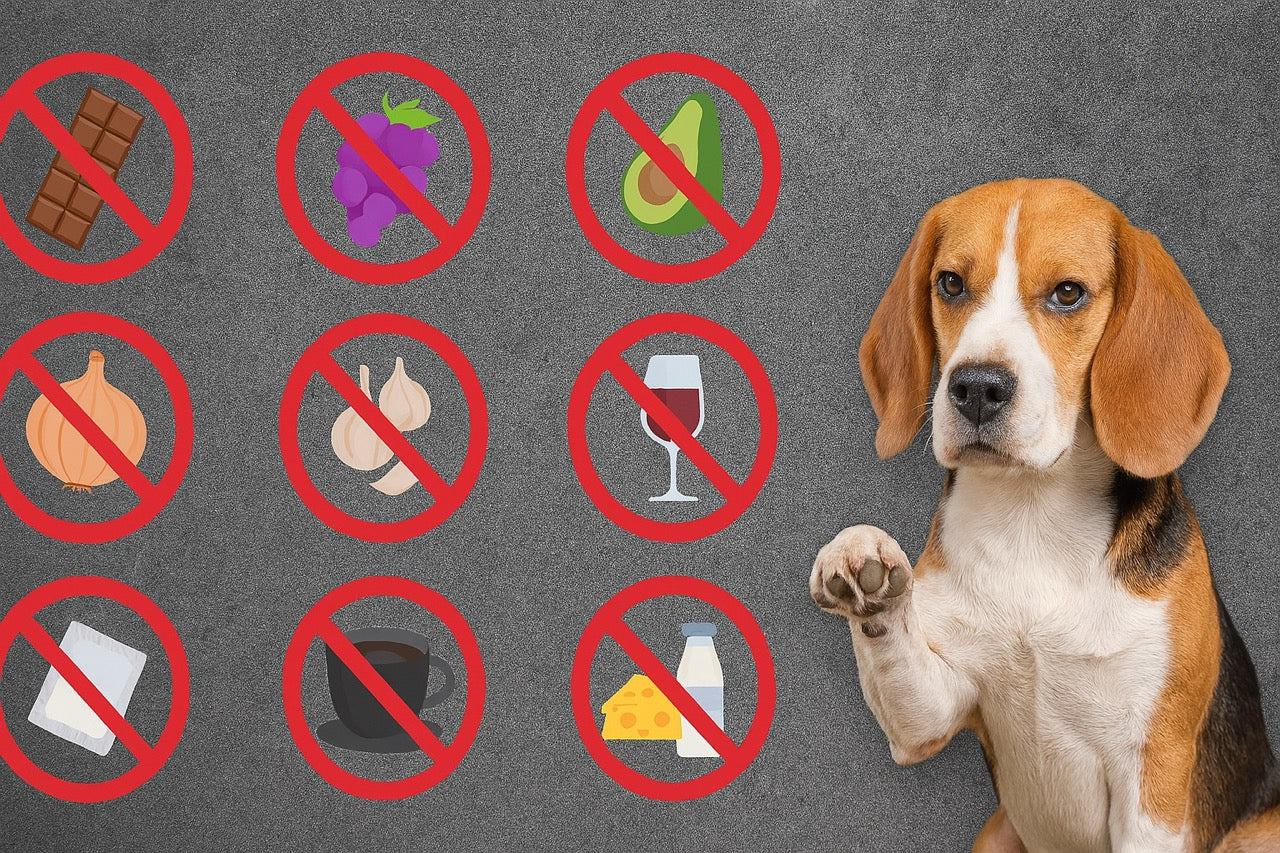
Written by Christian Morgan, Doctor of Veterinary Medicine
As dog owners, we all love to share our meals with our furry companions. However, not every food we enjoy is safe for them to consume. In fact, some common foods can be extremely harmful—or even deadly—to dogs. Let’s dive into a list of foods that should stay far away from your dog's bowl, and back up these claims with science.
Chocolate
It’s no secret that chocolate is toxic to dogs, but do you know why? Chocolate contains theobromine, a stimulant that dogs metabolize much slower than humans. This can lead to poisoning, with symptoms ranging from vomiting and diarrhea to seizures and even death.
Grapes and Raisins
Grapes and raisins can cause severe kidney failure in dogs, even in small amounts. The exact substance responsible remains unknown, but the consequences are well-documented. If your dog eats any, you may notice signs like vomiting, lethargy, and a lack of appetite.
Onions and Garlic
Both onions and garlic, whether raw, cooked, or powdered, can be toxic to dogs. These foods contain compounds like thiosulfates that can damage red blood cells, leading to hemolytic anemia, a condition where the body destroys its own red blood cells. Symptoms include weakness, lethargy, and a reduced appetite.
Avocados
While avocado is a healthy snack for humans, it can be dangerous for dogs. The fruit contains a toxin called persin, which can cause vomiting and diarrhea in dogs. In large amounts, it could also lead to more serious issues, like fluid accumulation in the lungs and chest, leading to difficulty breathing or death. Fluid accumulation can also occur in the heart, pancreas and abdomen.
Alcohol
Even small amounts of alcohol can be life-threatening to dogs. It depresses the central nervous system, leading to symptoms like vomiting, disorientation, and even coma. In severe cases, it can result in respiratory failure or death.
Xylitol (Artificial Sweetener)
Xylitol, a sugar substitute found in many sugar-free gum, candies, and baked goods, can cause insulin spikes in dogs, leading to hypoglycemia (low blood sugar). This can result in seizures, liver failure, and, in some cases, death.
Cooked Bones
When bones are cooked, they become brittle and can splinter, leading to choking hazards or damage to your dog’s digestive tract.
Macadamia Nuts
Macadamia nuts can cause weakness, tremors, and even paralysis in dogs. The exact mechanism of toxicity remains unclear, but consuming just a small number of these nuts can be harmful.
Caffeine
Like chocolate, caffeine is another stimulant that can be dangerous for dogs. It can cause restlessness, rapid breathing, heart palpitations, and in severe cases, death. Be cautious with coffee, tea, and energy drinks around your pet.
Dairy Products
Although not always toxic, many dogs are lactose intolerant, which means consuming dairy products can lead to gastrointestinal upset, including diarrhea and vomiting. Even if your dog isn't lactose intolerant, dairy should still be given in moderation.
As much as we might want to treat our dogs with human food, it’s essential to remember that their digestive systems are different from ours. Always do your research before sharing food with your furry friend, and when in doubt, stick to Team Dog treats. Keeping your dog safe from harmful foods is a crucial part of responsible pet ownership.
If your dog ever consumes any of these dangerous foods, it’s important to consult a veterinarian immediately, even if they’re not showing symptoms right away. Early intervention can make all the difference.
